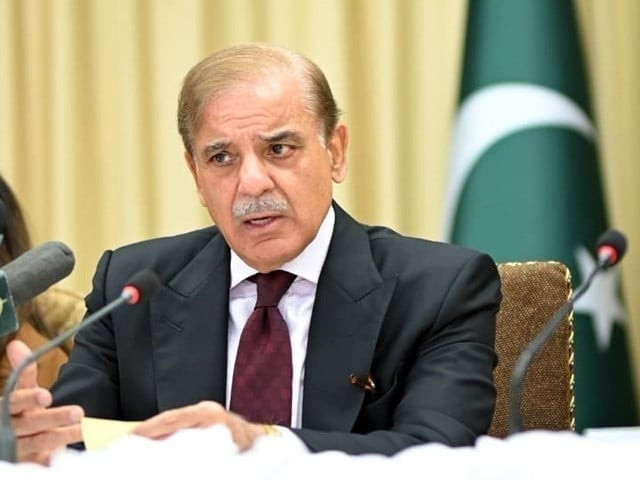PM Shehbaz urges developed nations to help developing countries escape debt traps
He shared Pakistan's struggle with devastating impacts of climate change while speaking at the UN SDG meeting

Prime Minister Shehbaz Sharif called on developed nations to assist developing countries in escaping the debt traps largely caused by climate change-related natural disasters.
Speaking at the SDG Moment 2024 meeting on the sidelines of the 79th United Nations General Assembly Session on Tuesday, he highlighted the devastating impact of climate change on Pakistan.
“In 2022, we experienced the worst flooding in our history due to climate change, which was not our fault. We contribute barely a fraction of a per cent to global carbon emissions,” he stated.
Sharif stated that developed and wealthy nations, as the primary contributors to carbon emissions, bear the responsibility to assist developing countries. "This is crucial, or else this unbalanced and unjust system will lead nowhere," he warned.
He pointed out that Pakistan faced losses amounting to $30 billion during the 2022 floods. Despite this, Pakistan is still required to borrow funds to pay off existing debts, a cycle he described as a "death trap" for developing countries.
PM Shehbaz also addressed the financing gaps for achieving the Sustainable Development Goals (SDGs), which amount to trillions of dollars. He noted that countries like Pakistan struggle to raise funds to meet these goals.
On the topic of terrorism, he recalled that Pakistan faced severe terrorism after the events of 9/11, which was largely pushed from across the border. He noted that Pakistan lost around 80,000 lives and incurred a financial loss of $150 billion in the fight against terrorism. “We have finally managed to defeat the terrorists, but at a great cost,” he added.
Highlighting his efforts in the education sector, both as chief minister of Punjab and as PM, Shehbaz detailed several initiatives aimed at transforming the education system.
He introduced programs such as the Punjab Endowment Education Fund (PEEF), which provides scholarships to high-achieving students from poor backgrounds, allowing them to study in schools across the country or abroad. He described PEEF as one of the largest funds in South Asia, benefiting hundreds of thousands of children.
He also mentioned the establishment of Danish Schools, designed specifically for talented, underprivileged, and orphaned children. These schools, equipped with modern technology, high-quality teachers, and resources, have produced students who are now serving as doctors, engineers, and scientists.
Additionally, he initiated vocational training and skill development programs in educational institutions. However, he expressed regret that around 25 million children remain out of school. He assured that efforts are underway to enrol them and ensure access to education for all.



















COMMENTS
Comments are moderated and generally will be posted if they are on-topic and not abusive.
For more information, please see our Comments FAQ